Routine HVAC System Maintenace
We recommend that a homeowner conduct routine AC unit mainteance to keep the HVAC system operating at optimum performance levels reducing the risk of incurring repair costs due to neglecting AC unit maintenance.
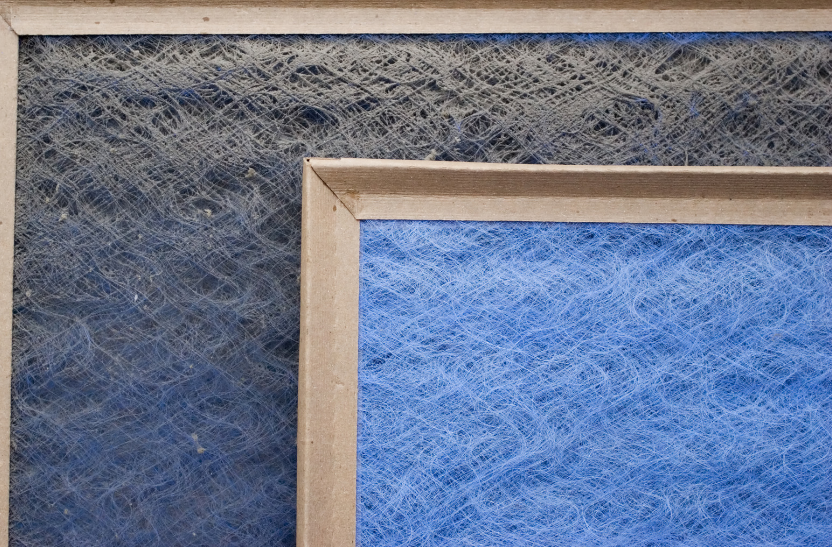
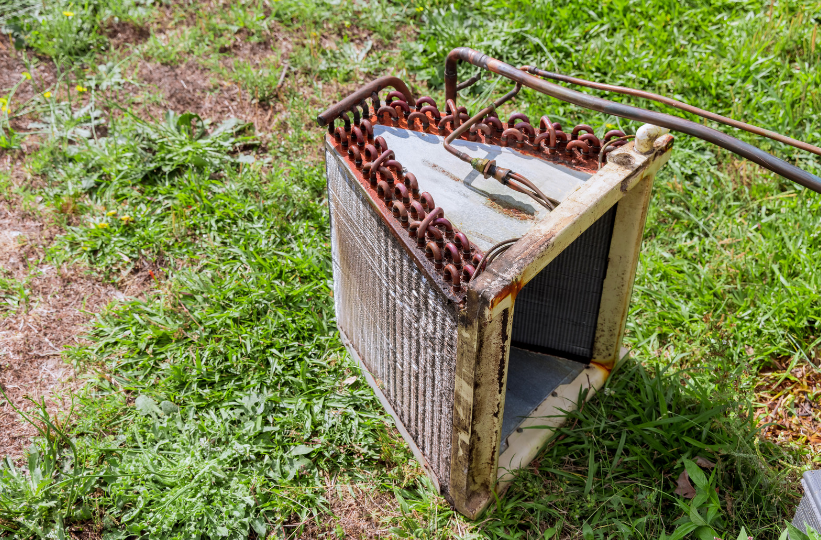
Failure To Address AC Unit Issues
When an AC unit surfaces it is time to address it head-on. No waiting. No procrastination. The longer you wait to address an AC unit issue the higher the AC unit repair cost will be. One AC unit problem left unaddressed will lead to other AC unit problems. The photo above is an evaporator coil that has not been properly maintained leading to unneccesary homeowner HVAC system repair costs. An evaporator coil is filled with refrigerant. It absorbs the hear from the air inside your home. Keeping your evaporator coil clean and well-maintained is crucial to maintaining the efficiency of your system. The best way to keep your evaporator coil clean is to change your air filters on a regular basis. At least once a month in our area. When an air filter becomes clogged then the dirt in the air will begin to settle on the evaporator coils instead of the air filter. When dirt and dust buildup on an evaporator coild it prevents air from entering the heat exchangers. This prevents proper heat transfer and can result in too little heat being absorbed from the air.
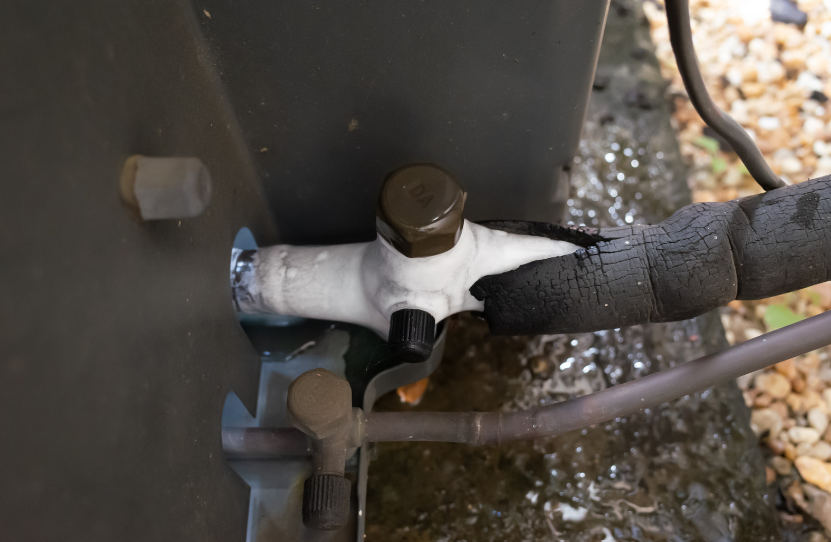
Frozen AC Unit Coils
Despite the hot and humid weather that sweeps through our area, an AC freezing up is one of the most common reasons the unit stops working properly. Dealing with AC unit frozen coils likely means there’s no cool air pumping into your home. The MAIN REASON an AC condenser freezes is because of poor air flow. You will want to check your air filters. When was the last time you replaced them? Dirty coils can cause airflow restrictiions, leading to an AC unit freezing. Damaged blower fan can cause your coild to freeze up. Collapsed air ducts can also result in coils freezing up. Low refrigerant can lead to coils freezing up.
SEER = Seasonal Energy Efficiency Ratio
While the EER rating will tell you the efficiency of an air conditioner at perfect conditions (95 degrees), the SEER rating gives you performance efficiency during the whole summers season (65-104 degrees). Every AC unit should have s Seer rating in the list of specifications. Most of older AC units are 14 or 13 SEER rating. SEER rating is the most important metric when choosing an energy-efficient AC unit. In air conditioners, the SEER rating is a metric that basically gives you and idea of how much cooling effect your AC unit will give you if you power it with a certain amount of electricity. We will discuss SEER ratings with you in our visit when you are considering a new AC unit installation.
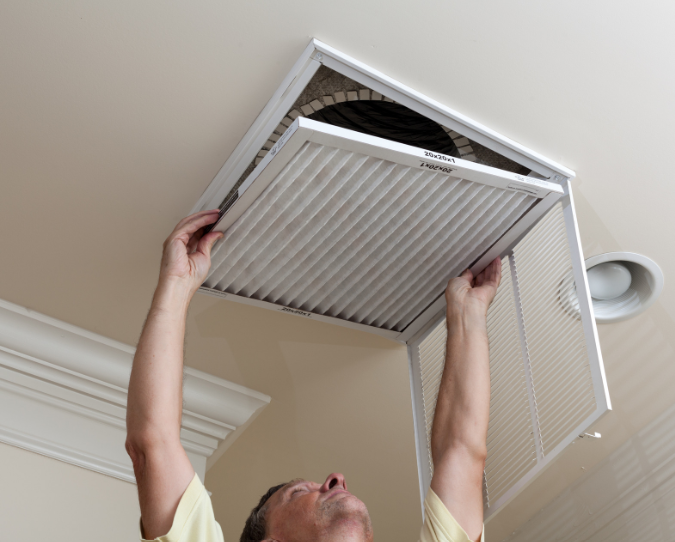
AC Unit Maintenance Tips
We are offering several AC Unit maintenance tips for keeping your AC running smoothly, so your home will stay cool all season long.
- Understand how your AC unit works. This will help you understand and recognize any foreign noises that may be coming from your HVAC system. Unusual noices coming from an HVAC system may be one of the first signs something is going wrong with the AC unit.
- Bent or crushed fins in the condenser is a problem.
- Keep your AC unit clean. Clean your AC unit in the spring before you start running it. Vacuum the fins of your AC unit with a clean soft-bristle brush.
- Repair a sinking home AC units pad.
- Consider getting a programmable thermostat.
- Unclog the condensate drain tube. When you see water puddling around the AC unit you have a clogged drain tube.
- Replace the filters on a regular basis.
- Open shades will allow sunlight to penetrate the home resulting in your AC unit working longer to cool spaces.
- Check the insulation around tubing.
- Find air leaks in your home.
- Do not wrap your condenser.
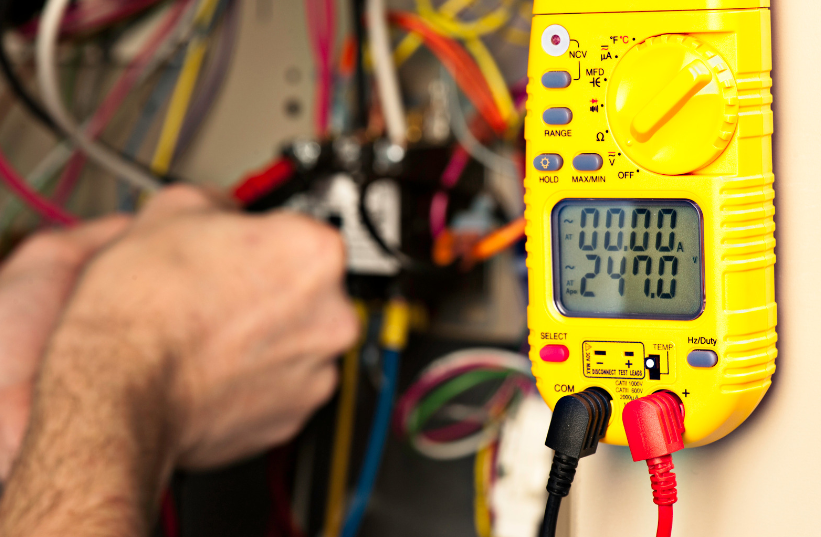
Our Expert Technicians
Do you have an AC unit failure? Are the coils frozen? No cold air? AC unit will not turn on? Unusual noises? If you have any of these issues or other issues not mentioned resulting in the malfunctioning of your HVAC system, please give us a call at 850-867-0826 and let’s discuss how we can best alleviate your problems in the most cost-effective fashion.
Main Components Of An HVAC System
HVAC stands for heating, ventilation, and air conditioning.The main components of an HVAC are the following…
- Thermostat: The thermostat instructs the HVAC to perform a specific task.
- Heat Exchanger: Heat exchangers are responsible for heat transference. They move heat from on place to another, and it used in both cooling and heating. An air conditioner uses a chemical called a refrigerant to move hear and turn it into cool air that is blown through ducts and vents into a room.
- Evaporator Coil: The evaporator coil absorbs heat from hot indoor air so it can be cooled by refrigerant and distributed through air conditioning. It turns the refrigerant into a gas or vapor and is essential to the heat exchange process.
- Condenser Coil: A condenser coils is cimilar to an evaporator coil, but it has the opposite job. Instead of drawing hot air from the inside, the condenser coil releases hot air outdoors. It allosw for the cycle of air circulation and filtration to occur by releasing the hot refrigerant vapor that builds up in a room. A fan blows over the condenser coil to repidly cool the hot air and condenses into a liquid again; the liquid in the condenser coil is returned to the evaporator coil, which allows it to return to a gas or vapor again.
- Combustion Chamber: The combustion chamber is also known as a burner, and it is the part of an HVAC system that heats cool air.
- Blower Motor: The blower motor is responsible for moving the cool air or hot air throughout the HVAC system’s ductwork. This is done using electricity, which powers the moror and uses a fan to cirulate air. All the ducts lead to separate supply and return vents situated throughout a home.
One Of The Most Critical Maintenance Items You Can Do Is To Change Your Air Filters
We cannot emphasize enough the importance of changing your air filters on a regular basis. In our area, if you want to have your AC unit operate at peak performance changing your air filter once a month is recommended. Failure to change your air filter on a regular basis will lead to AC unit repairs. Is your AC unit coils frozen? When was the last time you changed your air filters?
